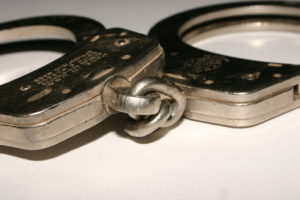Shoplifting
Shoplifting in Virginia is a form of Larceny (Va. Code §18.2-103). Larceny is taking property from another person, without consent, intending to permanently deprive the owner of his or her property. The offense is charged as Petty Larceny if the items are worth less than $1,000. It is charged as Grand Larceny if the items are worth more than $1,000. Shoplifting charges in Virginia are charged and punished the same way.
For more information on Petty Larceny in Virginia, click here.
For more information on Grand Larceny in Virginia, click here.
Proof of Shoplifting in Virginia
Shoplifting can be charged in Virginia can be charged if someone, without consent, conceals items or takes possession of goods in a store, alters the price tag on a store item, or transfers goods from one container to another, intending to take the property without paying the full purchase price or intending to defraud the store owner of the value of the property.
To convict an offender of a Shoplifting charge in Virginia, the Commonwealth must prove that the offender concealed an item or took possession of a store owner’s merchandise, intended to permanently deprive the owner of his property, and did not pay the full purchase price of the item or items.
Concealing and Taking Possession: Concealing an item occurs within a store, and an offender does not need to actually leave the store to be convicted of a Shoplifting charge in Virginia. Taking possession of an item refers to actually leaving the store with the item.
Intent: The Commonwealth must prove intent to permanently deprive the owner of his property to convict an offender of a Virginia shoplifting charge. One way the Commonwealth can prove intent is through concealment (hiding an item while in the store). Concealment is evidence that the offender intended to permanently deprive the owner of his property. Intent can also be proven if the offender altered price tags on store merchandise or walked past all points of sale with the merchandise without paying for it, or transferred goods from one item to another in a store.
Value: If the Virginia shoplifting charge is Grand Larceny, the Commonwealth must prove value (that the item or items are worth $1,000 or more).
For more information on concealment in Virginia, click here.
For more information on altering price tags in Virginia, click here.
For more information on transferring goods in Virginia, click here.
Virginia Shoplifting Charge for Assisting a Shoplifter
Someone can also be convicted of a Virginia shoplifting charge under Va. Code §18.2-103 if he or she assisted another person in shoplifting items.
Detention by Store Security for Suspicion of Shoplifting in Virginia
Va. Code §18.2-105.1 allows a store owner or his agent to detain a suspected shoplifter up to one hour while waiting for the police to arrive.
Penalties for Shoplifting Charge in Virginia


Penalties Increase in Virginia for Multiple Shoplifting Offenses
Since Shoplifting in Virginia is a form of Larceny, it is charged and punished the same way as Virginia Larceny charges.
A Virginia shoplifting charge (Va. Code §18.2-103) is punished as either Petty Larceny (Va. Code §18.2-96) or Grand Larceny (Va. Code §18.2-95), depending on the value of the items taken.
If the items are worth less than $1,000, the offense will be charged and punished as a Petty Larceny. It is punished with up to 12 months in jail and a fine up to $2,500.
If the items are worth $1,000 or more, the offense will be charged and punished as Grand Larceny. Grand larceny in Virginia is punished with up to 20 years in prison.
The offender may also be required to pay restitution (money paid to a victim to replace a monetary loss) for the items taken. He also might be banned from the store or property, even if he is not convicted.
For more information on Grand Larceny charges in Virginia, click here.
For more information on Larceny charges in Virginia, click here.






